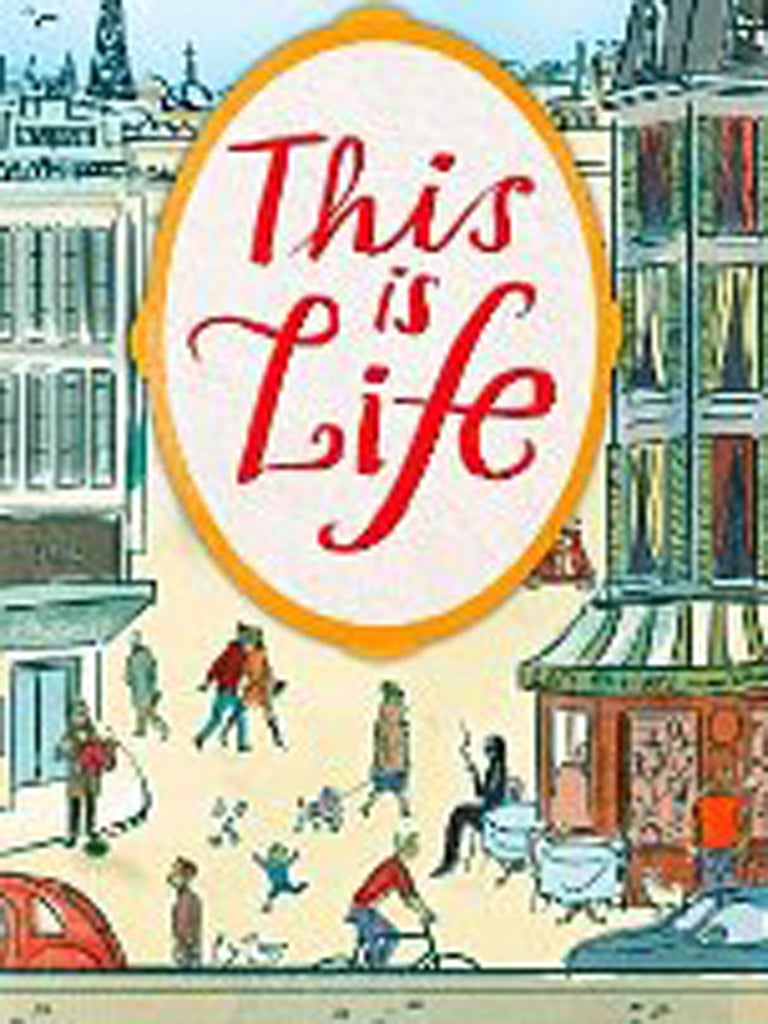This Is Life, By Dan Rhodes

Comic writer Dan Rhodes likes to spend time in the company of young French women. He has even posed as one. Under the nom de plume Danuta de Rhodes, his 2004 novel, The Little White Car, told the story of Veronique, whose Fiat Uno was allegedly involved in the accident that killed Diana.
In this latest novel, he tones down his more surreal flights of fancy for a soufflé-light farce poking fun at the Paris art world. When pretty student Aurelie Renard hurls a small pebble into a busy Parisian square as part of a conceptual art project, she lands herself in more trouble than she bargained for. In a moment of pure cinema, the lobbed stone follows a cartoonish arc before hitting a baby smack on the cheek.
Coming face-to-face with the baby's distraught mother, Aurelie agrees to make amends by looking after the bruised infant for a week. Turning this disaster into something positive, she decides the make the little blond boy, Herbert, the subject of her next creative venture. Coming to her aid is best friend Sylvie and her kindly if misunderstood art teacher, Professor Papavoine.
Meanwhile, across town in a Pigalle cinema, another artist, Leandre Martin, is preparing for his Paris debut. Known as Le Machine, he performs a show, Life, in which he squats naked over glassware pots while hooked up to colonic microphone. Little does he know that sharpening his critic's pen is Jean-Didier Delacroix, a snooty arts correspondent determined to make his reputation by soiling that of Leandre's.
This combination of Gallic whimsy and farce could prove wearisome, but Rhodes moves so fast that his novel never pauses to smile at its own reflection. Both Aurelie and Sylvie prove less infatuated with baby Herbert than with new love objects of their own. Even Le Machine finds his steely resolve waver under the gaze of a kooky young woman with a baby buggy in tow. Although Rhodes's Parisian fairytale can veer dangerously off piste, there's plenty of on-trend satire to win us back. Whether it's a novel about life imitating art or the other way around, Rhodes, like Le Machine, has managed to bottle something of both.
Join our commenting forum
Join thought-provoking conversations, follow other Independent readers and see their replies
Comments
Bookmark popover
Removed from bookmarks